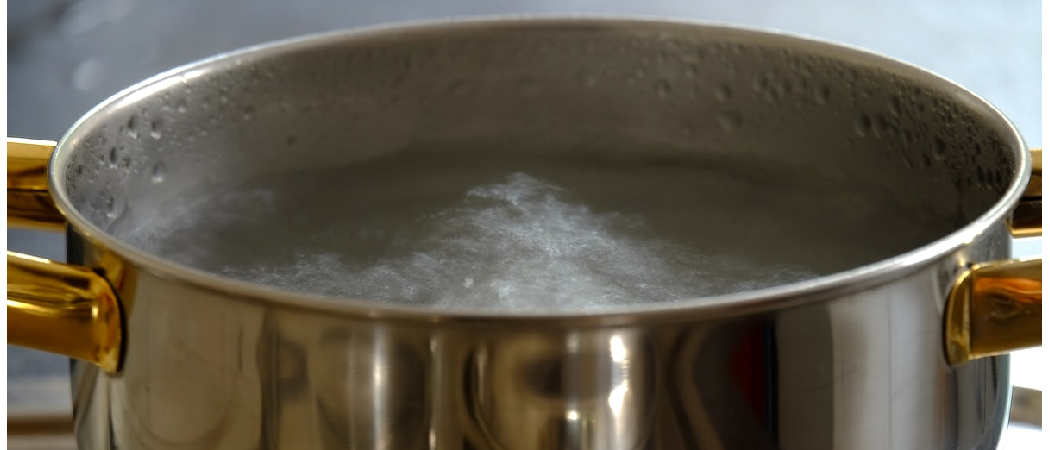Imagine the unsettling feeling when you turn on the tap, expecting clear, pure water, and instead, a stream of murky, brown liquid flows out. This disconcerting occurrence can lead to an immediate concern for the safety and quality of your water supply.
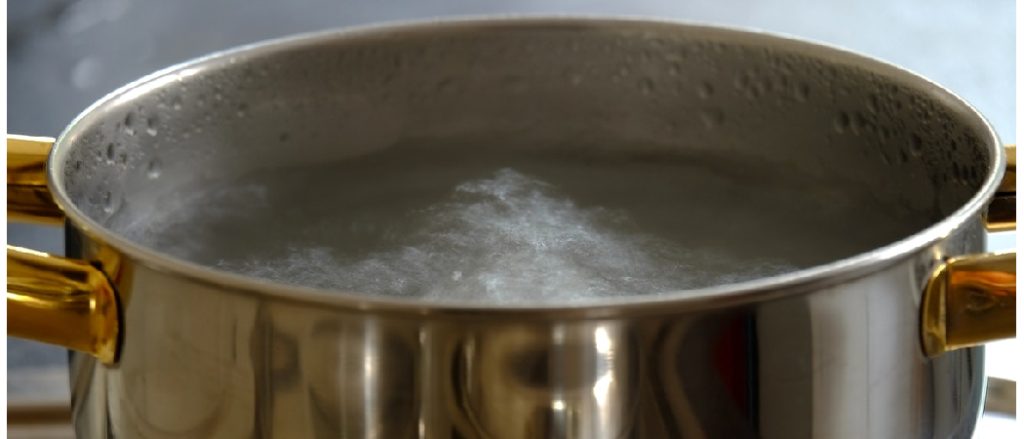
The scope of this issue isn’t limited; it can sporadically affect households and communities, leaving many to wonder, “why is my water brown all of a sudden?” To address this pressing question, we will explore the various potential culprits —from rusted pipes to disruptions in the water main— and guide you step-by-step towards identifying the cause and, ultimately, a solution to ensure your water is safe and clear once again.
Why Is My Water Brown All of A Sudden: Unveiling and Demystifying the Causes of Brown Water
Rusty Pipes: The Most Common Cause
One of the most common causes of brown water is rusty pipes. Over time, pipes can corrode and rust, especially if they are made of iron or galvanized steel. When this happens, the rust from inside the pipes can seep into your water supply, causing it to turn a brown or reddish color.
If you live in an older home or have an old water supply system, your pipes may be more prone to rust and corrosion. Additionally, changes in the flow of water, such as a sudden increase or decrease in pressure, can also dislodge the rust flakes from inside the pipes and mix them with your water.
Sediment Stirred Up: Disruptions in Water Main
Another common cause of brown water is a disruption in the water main. This can occur due to construction, nearby excavation work, or even heavy rainfall. When this happens, sediment and minerals that have settled at the bottom of the pipes can become stirred up and mixed with your water supply.
While this may not necessarily be harmful, it can lend an unpleasant appearance and taste to your water. If you suspect that this may be the cause, it is recommended to let your tap run for a few minutes until the water runs clear again.
Well Water Woes: Iron and Manganese
If you use well water as your main source of water, one possible cause of brown water may be the presence of iron and manganese. These minerals are naturally occurring in groundwater and can give your water a discolored appearance.
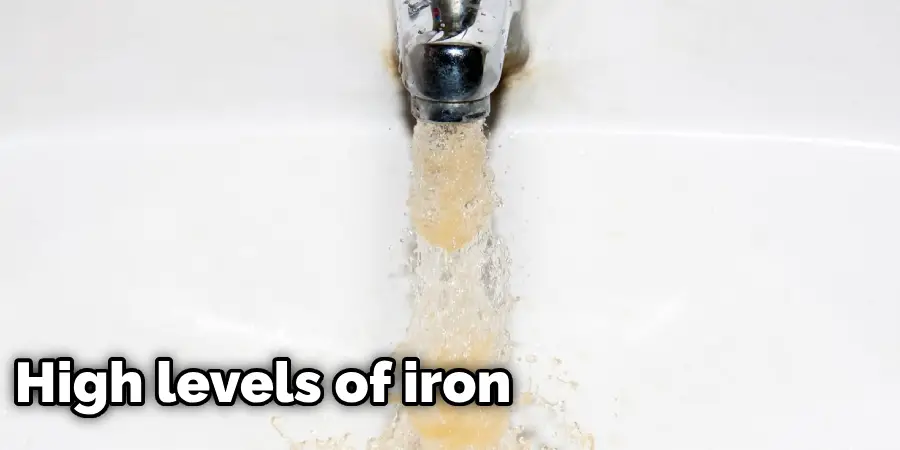
Although not harmful to consume, high levels of iron and manganese in well water can leave stains on clothing, dishes, and plumbing fixtures. It is advised to have your well water tested regularly to ensure it meets safety standards.
Municipal Water Supply: Potential Causes
If you receive your water from a municipal supply, there could be several reasons why your water may suddenly turn brown. This can include changes in the source of the water, such as taking in more surface water after heavy rainfall or an increase in algae levels.
It can also be due to maintenance work being done on the water system, which can cause temporary changes in water pressure and flow, leading to the stirring up of sediment. In rare cases, it may even be a result of a malfunction in the treatment process, although this is less common and quickly addressed by authorities.
Other Possible Causes: Time for a Professional Opinion
While rusty pipes, disruptions in the water main, well water issues, and municipal water supply changes are the most common causes of brown water, there may be other underlying factors that require further investigation by a professional.
Some possible reasons include a damaged or deteriorating hot water heater, which can lead to rust buildup and discoloration of your hot water supply. It could also be due to a broken water main or sewer line, which can cause contamination of your water supply.
In these cases, it is best to seek the help of a trained professional to assess the situation and provide an appropriate solution.
Now, you can fathom inwardly, in your mind, why is my water brown all of a sudden and take the necessary steps to address the issue. By understanding the potential causes of brown water, you can better identify the problem and take appropriate action to ensure your water is safe, clear, and ready for consumption.
The Severity Spectrum: Assessing the Brown Water Threat
When it comes to brown water flowing from your taps, not all scenarios carry the same level of concern. By examining the spectrum of severity through various factors, you will gain a deeper insight into the urgency and potential health implications of the issue at hand.
Visual Cues: Interpreting the Shades of Brown and Their Potential Meaning
The range of color from light yellow to dark brown can often provide the first clue about the nature of the problem. A light tint could imply a mild concentration of contaminants, like iron, whereas a deeper hue might signify a more significant presence of rust or other materials. A careful observation of these visual cues can be pivotal in determining the next course of action.
Odor Alerts: Recognizing Unusual Smells That May Indicate Further Problems
Your sense of smell is another critical factor in assessing water quality. An earthy or metallic smell could reinforce the likelihood of rust or organic matter, whereas any foul or sewage-like odors may signal contamination that warrants immediate attention.
Health Concerns: Understanding the Safety Implications of Different Scenarios
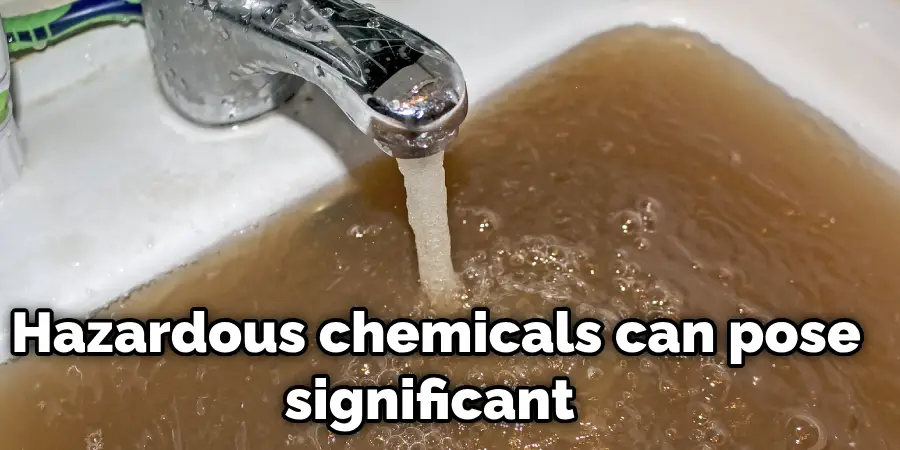
While discolored water isn’t always harmful, understanding the potential health risks is essential. Contaminants like bacteria or hazardous chemicals can pose significant health threats, necessitating swift action to protect yourself and your family.
When to Seek Help: Knowing When to Call a Professional Immediately
Some brown water issues can be waited out or resolved with simple household measures. However, if the discoloration persists, is accompanied by an odor, or if you suspect contamination beyond mineral presence, it is critical to promptly contact a professional plumber or your local water authority to mitigate risks and restore your water’s purity.
The DIY Detective: Investigating the Source at Home
Intrigued by the mystery of brown water, you can assume the role of a DIY Detective to deduce the origin of the discoloration before calling in the experts.
Gathering Clues: Checking Faucets, Appliances, and Outdoor Sources
Begin your investigation by scrutinizing each faucet in your home to discern whether the issue is isolated or widespread. Check for telltale signs of corrosion or buildup on fixtures. Inspect appliances such as water heaters and washing machines for any signs of malfunctioning that may contribute to the problem. Remember to examine outdoor spigots, as they can often be the culprits of contamination.
The Flow Test: Observing Water Clarity from Different Taps and Hot/Cold Lines
Carry out a ‘Flow Test’ by running water from each tap and observing the clarity. Does the discoloration occur in both hot and cold lines, or is it just one temperature indicating a problem with your heater? Take notes of the water’s appearance as it begins to run and after it’s been running for a few minutes, as settling sediment may clear up on its own.
Neighborly Intel: Comparing Experiences with Nearby Residents
Extend your detective work beyond your own four walls by consulting neighbors. Do they experience similar issues with their water? This can unveil whether the issue is with the municipal supply or unique to your residence.
Documenting Your Findings: Creating a Record for Potential Professional Assistance

Lastly, document your findings meticulously. Keep records of the timings, appearances, and occurrences of the discolored water, supplemented by photos or videos if possible. This documented evidence will be invaluable when you call in a professional, enabling them to diagnose the problem more quickly and accurately.
Summoning the Professionals: When DIY Isn’t Enough
When faced with persistent brown water, the time may come to acknowledge that the problem lies beyond the realm of DIY fixes. While it’s important to gauge what you can handle, knowing when to call in the experts is a critical step in safeguarding your water supply.
Recognizing Your Limits: When the Problem Is Beyond Your Expertise
Sometimes, the issue at hand may be complex, involving municipal lines or in-depth plumbing systems that require specific tools and expertise. If your investigative efforts as a DIY Detective haven’t resolved the issue or revealed clear causes, it’s time to recognize your limits and seek professional assistance.
Finding the Right Help: Identifying Qualified Plumbers or Water Specialists
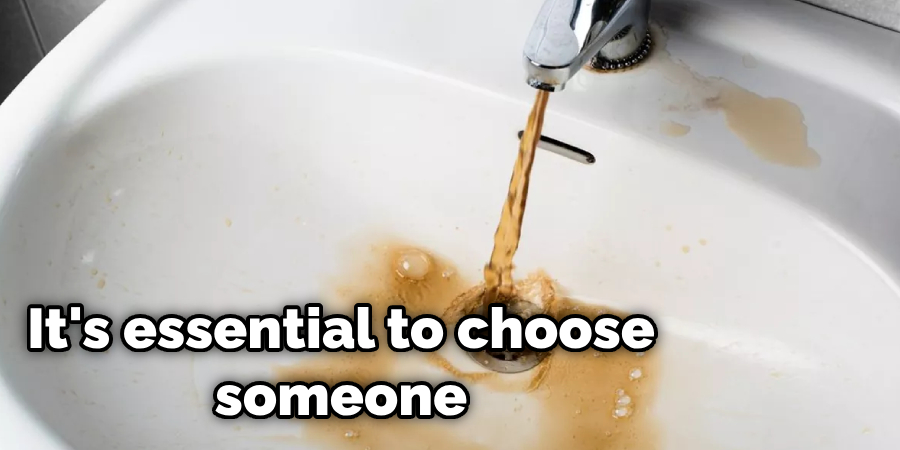
Search for reputable plumbers or dedicated water specialists in your area. Look for certified and experienced professionals with positive reviews and a proven track record. It’s essential to choose someone who can handle potential complexities involving water supply systems or water heaters and who is familiar with local water composition and infrastructure.
Explaining the Situation: Providing Clear Details to Aid Troubleshooting
When you call the professionals, be ready to provide them with all the details of your situation. Use your documented findings to give a clear account of the problem’s history, your observations, and any testing you’ve done. The more information they have, the better they can prepare for the job and diagnose the issue efficiently.
The Repair Process: Understanding Potential Solutions and Their Implications
Be prepared to discuss potential solutions that the professional may suggest. They might propose pipe replacements, water heater repairs, or adjustments to your water supply system. Make sure to understand the implications of these repairs, including the time, costs involved, and any disruptions to your daily routine, to ensure that you are completely informed about the process moving forward.
Preventing the Brown Repeat: Tips for Future Clarity
Regular Maintenance: Flushing Pipes, Checking for Leaks, and Addressing Potential Issues Early
Regular maintenance is key to preventing future occurrences of brown water. Flushing your pipes annually, looking out for leaks, and addressing small problems before they escalate can all contribute to maintaining a clean water supply. Proactive checks and timely repairs will go a long way in keeping the water in your home clean and safe for use.
Water Filtration Systems: Exploring Options for Cleaner, Clearer Water
Investing in a water filtration system can be an effective solution to ensuring consistently clean water. There are a variety of filtering options available, from whole-house systems to point-of-use filters. Research the best option for your needs to remove unwanted minerals and potential contaminants, thereby enhancing the overall quality of your water supply.
Well Maintenance: Specific Tips for Private Well Owners to Optimize Water Quality
For private well owners, regular maintenance is particularly crucial. It’s important to have your well professionally inspected and to test its water quality annually. Steps such as keeping hazardous chemicals away from your well area, ensuring the well is properly sealed, and scheduling periodic cleanings will help protect against contamination.
Staying Informed: Monitoring Local Water Updates and Advisories

Being aware of the condition of your local water supply is essential. Stay informed about any advisories or updates from your local water authority. Sign up for alerts, if available, and be mindful of changes in water regulations and safety guidelines. Knowledge of your local water environment will enable you to act swiftly and appropriately should new concerns arise.
Beyond the Brown: Understanding Water Quality
Water quality is not simply about keeping discoloration at bay; it reflects a critical component of our health and environment. Comprehensive understanding and proactive management are imperative in guaranteeing the safety and purity of the water we rely on every day.
Importance of Clean Water: Highlighting the vital role of water in our lives
The importance of clean water transcends basic hydration—it is fundamental for cooking, bathing, and overall public health. Contaminated water can lead to a suite of health problems, ranging from gastrointestinal illnesses to serious long-term conditions. Access to clean water is, therefore, a cornerstone of a healthy lifestyle and a vibrant community.
Understanding Water Sources: Municipal systems, private wells, and their differences

Water sources are as varied as the landscapes they flow through. Municipal water systems are centrally treated to meet safety standards before reaching homes, while private wells tap directly into groundwater, requiring individual maintenance and testing. Understanding the source of your water is the first step toward ensuring its quality.
Water Treatment Processes: Unveiling the steps taken to ensure safe drinking water
The journey from source to tap involves several treatment processes designed to remove contaminants and pathogens. Coagulation, sedimentation, filtration, and disinfection are typical stages that municipal water goes through. Knowledge of these processes helps consumers appreciate the efforts taken to safeguard water and understand potential points of contamination.
Consumer Resources: Learning more about water quality and your rights
Being informed is the consumer’s best defense. Plenty of resources, such as the Environmental Protection Agency (EPA) in the United States, provide guidance on water quality standards and consumer rights. Consumers can access water quality reports, learn about the latest research, and understand how to take action if their water does not meet expected safety standards.
Conclusion: Reflecting on Clear Waters Ahead
In summary, the primary question, “Why is my water brown all of a sudden?” has led us through a comprehensive exploration of water quality issues, ranging from immediate actions to long-term preventive strategies. Warranted by the critical role of water in our lives, it is crucial to stay informed, proactive, and prepared for any changes or concerns that may arise.
With these insights and tools at hand, we can expect clear waters ahead. All in all, remember that prevention is critical when it comes to maintaining a safe and clean water supply. Stay vigilant and address minor issues before they become big problems.
With the proper knowledge and actions, we can ensure that our water remains clear and safe for use.

